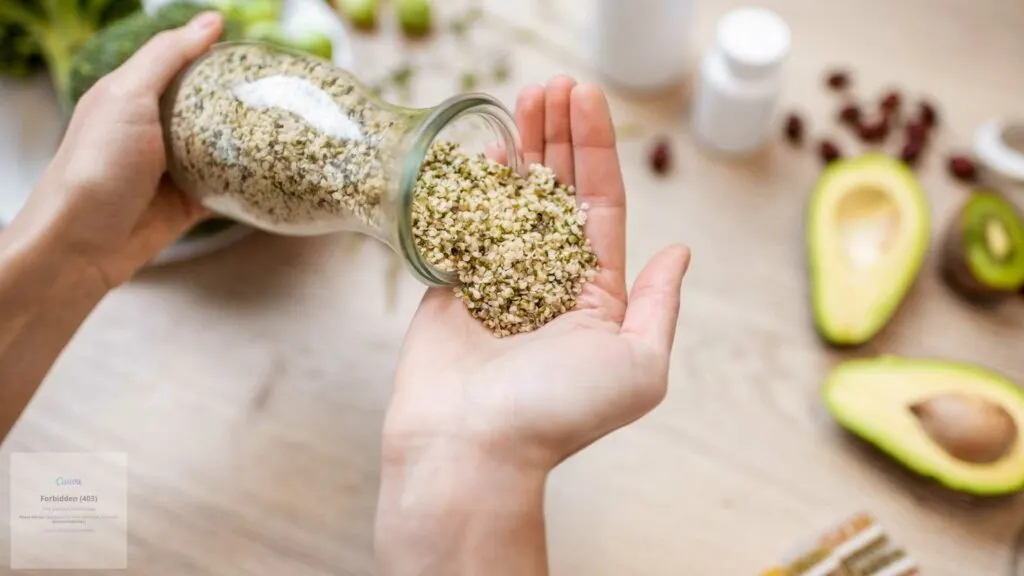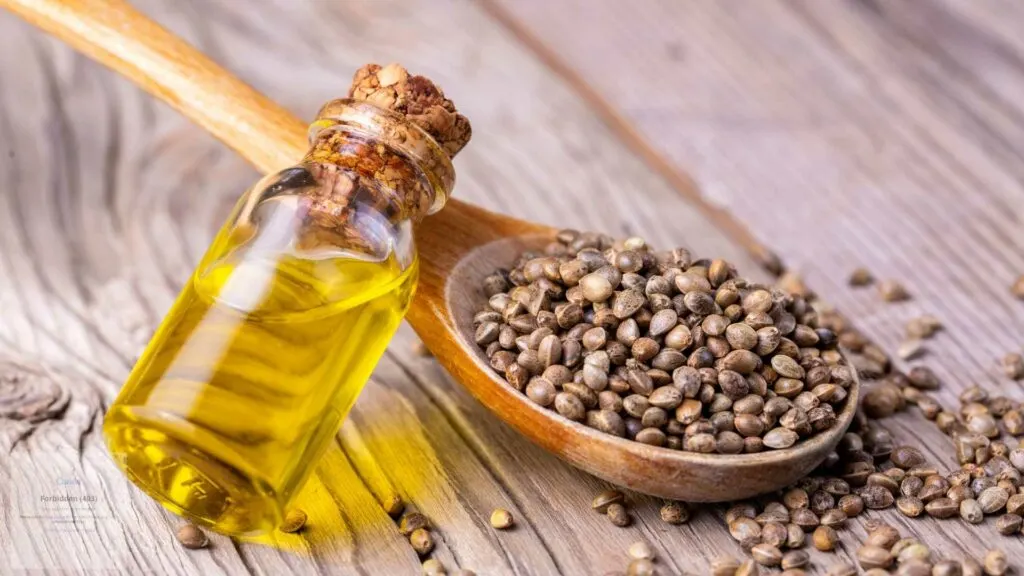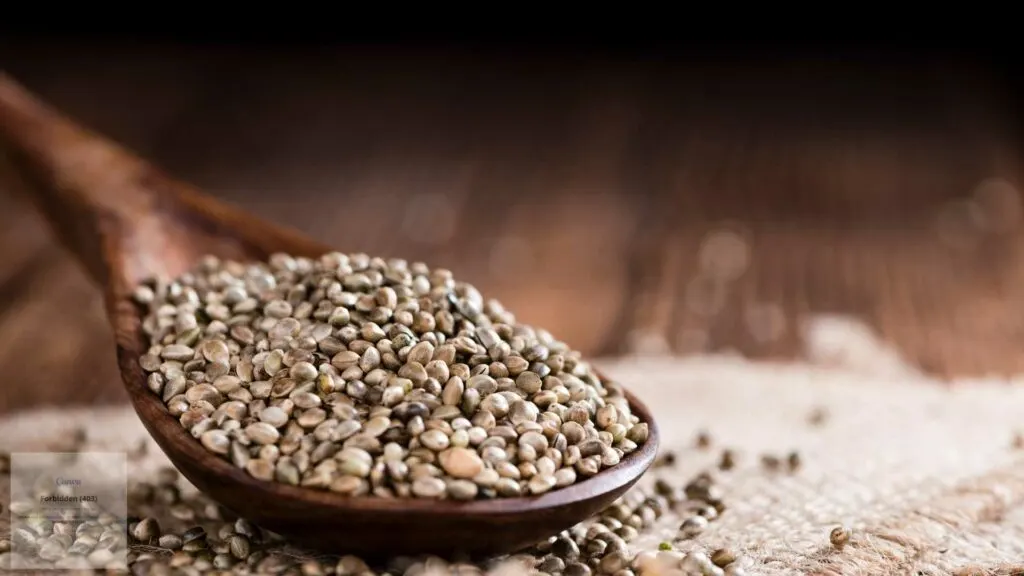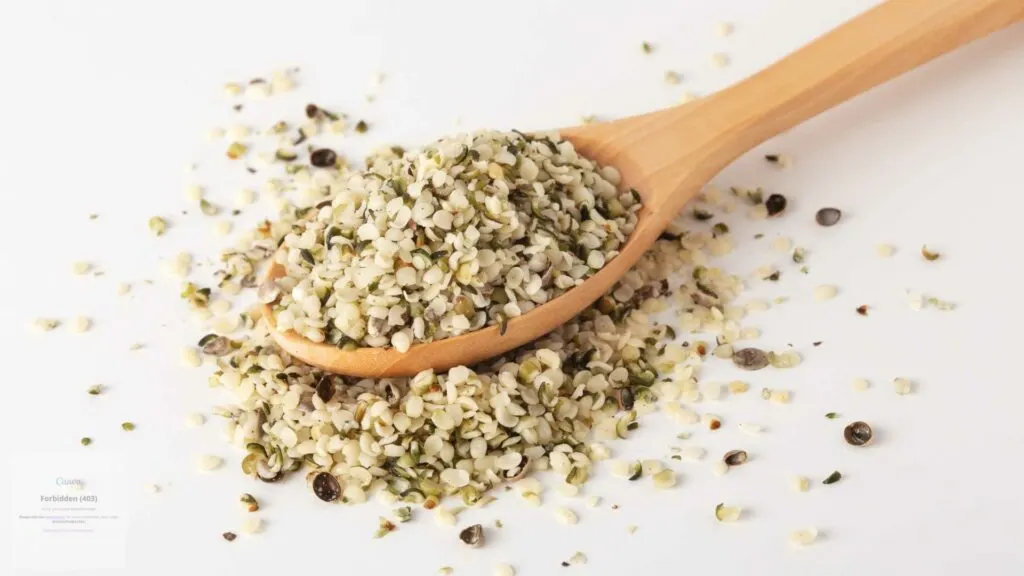Hemp seeds are a powerhouse of nutrition and have recently gained popularity as a superfood. Derived from the Cannabis sativa plant, these tiny seeds are free from psychoactive substances and are legal to consume. Packed with essential fatty acids, protein, and various minerals and vitamins, hemp seeds offer a comprehensive nutritional profile that supports overall health.
Rich in omega-3 and omega-6 fatty acids in an ideal ratio, hemp seeds promote heart health, reduce inflammation, and enhance skin health. They are also a great source of high-quality plant-based protein, making them a favorite among vegetarians and vegans.
Additionally, hemp seeds contain fiber, which aids digestion and promotes a feeling of fullness, helping in weight management.
Integrating hemp seeds into your diet is not only beneficial but also accessible. They offer a nutty flavor that can enhance various dishes, from smoothies to salads. This versatility makes them a great addition to any health-conscious individual’s pantry.

What Does Hemp Seed Do For Your Body?
Hemp seeds and other products, such as edible THC gummies, are incredibly beneficial for your body, offering various nutritional and health benefits. Here’s what hemp seed does for your body:
Nutritional Balance: Hemp seeds are a great source of essential fatty acids, including omega-3 and omega-6, crucial for maintaining heart health, reducing inflammation, and supporting brain function. They also provide a balanced ratio of these fats, which is rare in many familiar dietary sources.
Protein Source: Hemp seeds are a complete protein source, containing all nine essential amino acids the body cannot produce independently. This makes them particularly valuable for those on a plant-based diet.
Rich in Fiber: Hemp seeds are a good source of soluble and insoluble fiber, essential for digestive health. Soluble fiber can help regulate blood sugar levels and reduce cholesterol, while insoluble fiber aids in digestion and prevents constipation.
Mineral and Vitamin Content: Hemp seeds are rich in vitamins and minerals, including vitamin E, magnesium, phosphorous, potassium, iron, zinc, and B vitamins. These nutrients are critical in many bodily functions, including metabolism, bone health, and immune function.
Skin Health: The omega-3 and omega-6 fatty acids in hemp seeds can help to improve skin conditions by reducing dryness and irritation. They may also boost the skin’s ability to resist infections and inflammation.
Hormonal Balance: Gamma-linolenic acid (GLA) found in hemp seeds is known to support the balance of hormones in the body. This can be particularly beneficial during PMS and menopause by reducing symptoms such as cramps, tension, and irritability.
Heart Health: The amino acid arginine in hemp seeds produces nitric oxide in the body, which helps relax blood vessels and maintain smooth blood flow. This can reduce blood pressure and help prevent heart disease.

How Much Hemp Seed Should I Eat Daily?
The recommended daily intake of hemp seeds can vary depending on your overall diet, nutritional needs, and health goals. Generally, hemp seeds are served at about 2-3 tablespoons (approximately 30 grams). This amount provides a good balance of the nutrients hemp seeds are known for, such as protein, essential fatty acids, and fiber.
Here’s a breakdown of what you get from approximately three tablespoons of hemp seeds:
- Protein: 9-10 grams is great for muscle repair and growth.
- Fat: Around 14-15 grams, balanced with essential omega-3 and omega-6 fatty acids.
- Fiber: About 1-2 grams, contributing to digestive health.
Including this amount in your daily diet can help in several ways, from improving heart health to enhancing skin condition and supporting digestive health. You can easily incorporate hemp seeds into your diet by sprinkling them on salads, blending them into smoothies, adding them to yogurt or oatmeal, or even using them in baking.
However, as with any dietary addition, it’s essential to consider your health needs and dietary restrictions. Consult a healthcare provider or a nutritionist if you’re unsure or have specific health conditions that might affect your diet.
What Happens If You Eat Hemp Seeds Everyday?

Eating hemp THC gummies daily can provide numerous health benefits due to their rich nutritional profile. Here’s what you might experience by incorporating hemp seeds into your diet regularly:
Improved Heart Health: Hemp seeds are a good source of arginine, an amino acid converted into nitric oxide in the body. Nitric oxide is essential for artery and vein dilation and helps keep blood vessel walls smooth and elastic. Lowering blood pressure and reducing the risk of heart disease are potential benefits of this improved circulation.
Enhanced Digestive Health: Due to their high fiber content, hemp seeds can help promote regular digestion and prevent constipation. Fiber is essential for digestive health, aiding in the absorption of nutrients and processing waste products.
Reduced Inflammation: The gamma-linolenic acid (GLA) in hemp seeds is an omega-6 fatty acid known for its anti-inflammatory properties. Regular consumption can help manage and reduce inflammation associated with chronic diseases such as arthritis and autoimmune disorders.
Balanced Hormones: GLA from hemp seeds may also help balance hormone levels. This can be particularly beneficial for women, as it may alleviate symptoms associated with PMS and menopause, such as cramps and menopausal mood swings.
Healthier Skin: The omega-3 and omega-6 fatty acids in hemp seeds can strengthen the skin’s ability to resist bacterial, viral, and fungal infections. Regular consumption might improve skin conditions such as eczema and dermatitis by reducing dryness and irritation.
Weight Management: Hemp seeds are rich in protein and fiber, which are key in promoting satiety. By helping you feel full longer, they can be a helpful component in a weight management diet.
Improved Brain Function: Omega-3 fatty acids are crucial for brain health. They can contribute to maintaining normal brain function throughout life, supporting cognition, and preventing degenerative diseases.
Conclusion: Are Hemp Seeds Bad For Your Kidneys?

Hemp seeds are highly nutritious and generally safe, providing multiple health benefits without adversely affecting the kidneys for most people. Their rich protein, essential fatty acid, and fiber content enhances heart health, improves skin conditions, aids digestion, and helps balance hormones. These seeds are particularly effective in managing and preventing conditions like heart disease and arthritis due to their anti-inflammatory properties and arginine content, which improves blood flow and lowers blood pressure.
While incorporating hemp seeds into a diet is typically safe and beneficial, individuals with existing kidney conditions should consult their healthcare providers. Given the unique health needs of individuals, especially those with chronic conditions, consultation ensures that their dietary choices align with their specific health requirements. Thus, while hemp seeds offer broad health benefits and are safe for most, those with particular health issues should seek tailored medical advice.

Jessi is the creative mind behind The Coffee Mom, a popular blog that combines parenting advice, travel tips, and a love for all things Disney. As a trusted Disney influencer and passionate storyteller, Jessi’s authentic insights and relatable content resonate with readers worldwide.
